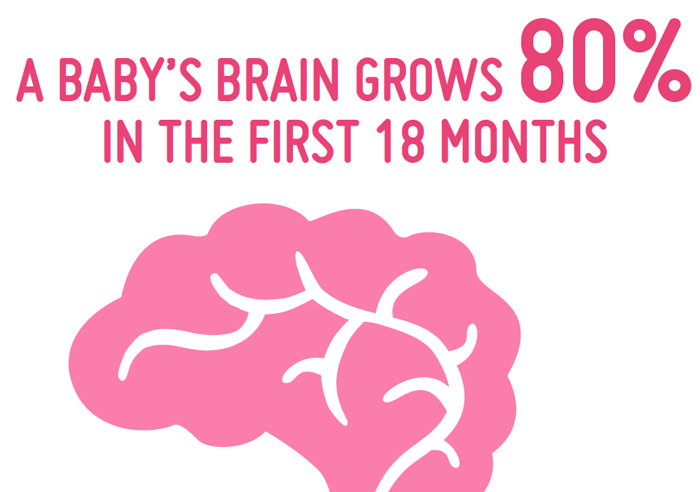Overview
This section gives some background research on some of the main points, related to the first 1000 days. The most important point is that during the first 1000 days, from conception to age 2, a baby’s brain grows at a phenomenal rate – by 80%! In fact it’s been calculated that connections in the brain are created at a rate of a million per second! The earliest experiences shape a baby’s brain development, and have a lifelong impact on that baby’s mental and emotional health. The environment therefore in which the baby develops is crucial.
Some of the the key issues that can effect this are:
Providing a loving, responsive environment. Love really does matter! In addition, secure attachment to a primary caregiver makes a huge difference to your child’s future ability to develop good relationships.
Stress/anxiety and/or depression of the mum (& household) – more and more research is confirming just how important this is.
Nutrition plays a key role, particularly in some African countries where both the quantity sometimes available and more often the knowledge to combine foods effectively is lacking. But even in the UK, where malnutrition is rarely a problem, ensuring you have sufficient nutrients is key to the baby’s developing brain. Your microbiome (sometimes called ‘second brain’) is important for general and mental health and new research is showing its increasing importance. Breastfeeding continues to be most beneficial for your baby and the World Health Organisation recommends breastfeeding exclusively for at least 6 months.



